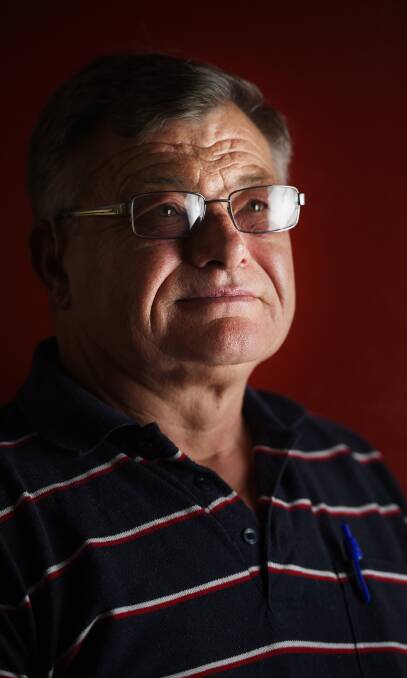
THE rise in the use of ice has left emergency workers vulnerable and exposed to horrific and violent physical attacks.
Subscribe now for unlimited access.
or signup to continue reading
Police Association assistant secretary Bruce McKenzie said Ballarat police were regularly exposed to violent ice-fuelled attacks during routine patrols.
Veteran former police officer Gary Chandler was left with permanent hearing loss after he was physically assaulted by a man on drugs decades ago.
He ended up in ICU, still suffers ringing in his ear and never regained full hearing.
But he believes officers on the beat are exposed to far more horrific violence than old school police officers were.
An unprovoked attack on an occupied police car in Ballarat has highlighted the threat of violence faced by those charged with protecting the community.
Mr Chandler said “armchair critics” were quick to criticise police for the way they handled situations, but said they had little understanding of the volatile and precarious situations police faced on a daily basis.
“I recently observed someone who I was told had been on ice, they were extremely violent,” Mr Chandler said.
Police Association members remain concerned about the level of violence directed at police and other emergency service workers.
Mr McKenzie said a lack of police staff in Ballarat was exacerbating the problem and leading to a high level of burn out among police.
“Police officers finding themselves in a violent situation is unfortunately not a new event for our members at Ballarat,” Mr McKenzie said.
Police officers finding themselves in a violent situation is unfortunately not a new event for our members at Ballarat.
- Bruce McKenzie, Police Association Victoria
“In August last year our Ballarat members told us people are addicted to ice.”
Police officers dealing with these aggressive community members were put at further risk, he said.
“(A person) can be calm one minute and totally violent the next ... it’s an issue of an ice epidemic,” Mr McKenzie said.
Police Association members are calling for tougher sentences for people who attack members – rather than the formation of dedicated task forces.
Mr Chandler, who is not generally for mandatory sentencing, said he believed there no option than to introduce mandatory jail terms for people who abused any emergency worker.
“That is an essential,” Mr Chandler said.
The Association is also calling for courts to “do their share of the heavy lifting” and ensure appropriate penalties are handed down.













